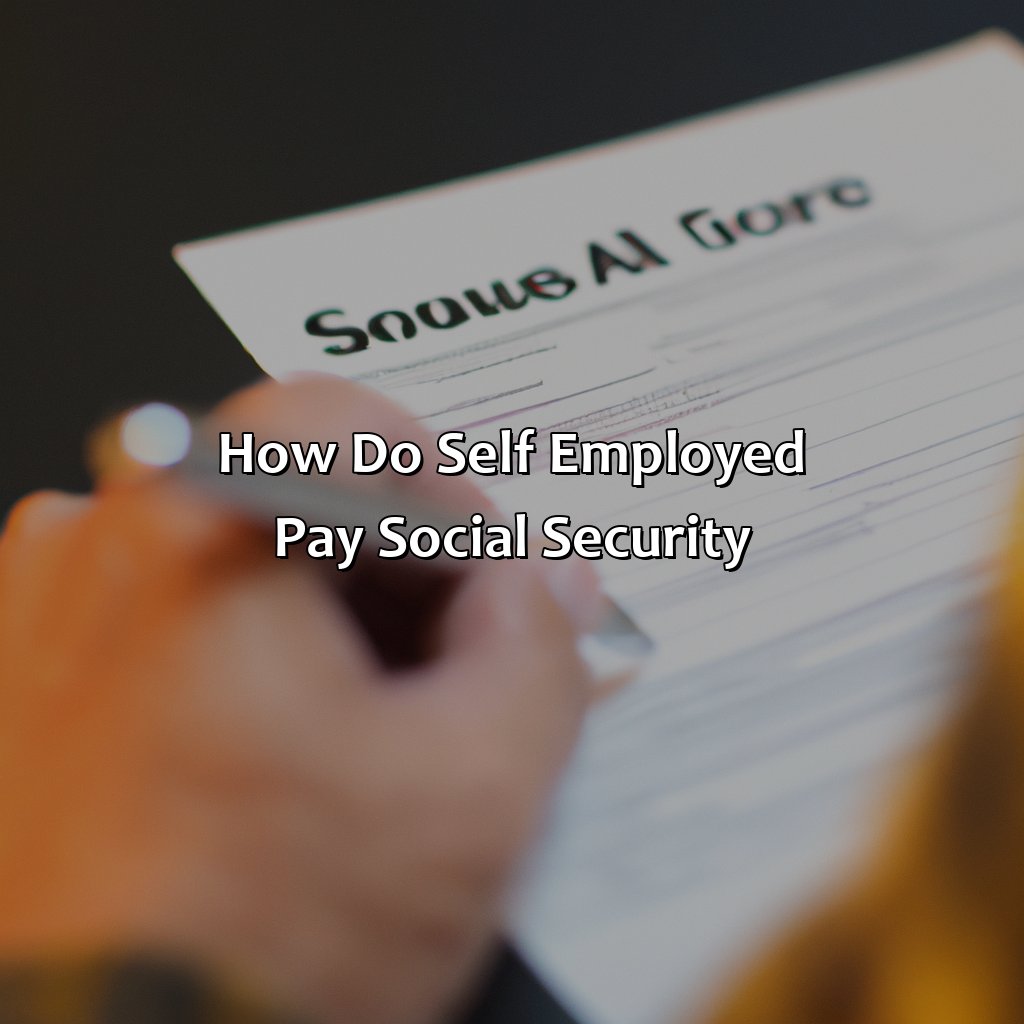How Do Self Employed Pay Social Security?
Key Takeaway:
- Self-employed individuals are responsible for paying Social Security taxes on their earnings, which includes both the employer and employee portion.
- The amount of Social Security tax owed is calculated based on the net earnings from self-employment, using the Self-Employment Contributions Act (SECA) tax rates.
- It is important for self-employed individuals to keep accurate records of their earnings and file their Social Security taxes on time to avoid penalties and ensure eligibility for Social Security benefits in the future.
Are you wondering how self-employed individuals can prepare for their future and pay into Social Security? This article will explain the process, so you can ensure that you have a secure retirement.
Social Security Taxes for Self-Employed Individuals
Self-employed individuals are responsible for paying their social security taxes. This obligation is essential since it covers their benefits when they retire, become disabled, or die. The Social Security Administration uses Form 1040-SE to calculate self-employed individuals’ social security tax contributions based on their net income. As a result, evidence of self-employment is necessary for filing taxes and paying taxes accordingly.
It is important to understand that social security taxes for self-employed individuals are different from those of employed individuals. Self-employed individuals cover both the employer and employee portions of social security taxes, whereas employed individuals have half of their contribution come from their employer. This means that self-employed individuals have a higher percentage of their income allocated to social security taxes.
Furthermore, self-employed individuals should remember to pay estimated taxes quarterly since social security tax contributions are not taken from their income automatically. Failing to pay social security taxes can lead to severe consequences, such as penalties and interest. To avoid this, self-employed individuals should ensure that their social security taxes are paid in full and on time.

Image credits: retiregenz.com by James Jones
Calculating Social Security Tax
Self-employed individuals are responsible for paying Social Security taxes on their earnings. This is a crucial step in calculating their Social Security tax liability, which is based on their net income. Here’s how to calculate Social Security tax:
- Determine your net income by subtracting your business expenses from your gross income.
- Multiply your net income by the Social Security tax rate, which is currently 12.4%. This rate is split equally between the employer and employee, meaning self-employed individuals pay both halves, or 12.4% of their net income.
- Calculate your Social Security tax liability by applying the maximum taxable earnings limit, which is $142,800 for 2021. If your net income exceeds this amount, only the first $142,800 is subject to the Social Security tax.
- Subtract any Social Security tax credits or deductions you may be eligible for.
- Pay your Social Security tax through quarterly estimated tax payments.
It’s important to note that self-employed individuals may also be required to pay Medicare taxes in addition to Social Security taxes. These taxes are calculated at a rate of 2.9% and are also split equally between employer and employee.
A unique aspect of calculating Social Security tax for the self-employed is the need to also pay the employer portion of the tax. This means self-employed individuals must pay double the amount of Social Security tax compared to regular employees.
According to the Social Security Administration, the maximum monthly Social Security benefit for an individual retiring at full retirement age in 2021 is $3,148. This figure is subject to change each year based on cost-of-living adjustments.

Image credits: retiregenz.com by David Woodhock
Paying Social Security Tax for Self-Employed Individuals
Self-employed individuals are responsible for paying their own social security taxes, which are also known as self-employment taxes. These taxes go towards funding Social Security and Medicare programs. The amount of tax you need to pay will depend on your net self-employment income and the current tax rates.
To calculate your social security tax, you need to complete Schedule SE (Form 1040), which is included with your federal income tax return. You will need to pay both the employer and employee portion of social security tax, which is currently 12.4% of your net self-employment income, up to a certain limit. You will also need to pay the Medicare tax, which is currently 2.9% of your net self-employment income.
It’s important to keep track of your expenses and deductions, as they can help reduce your taxable income and therefore lower your tax liability. Additionally, consider making estimated tax payments throughout the year to avoid underpayment penalties.
Overall, paying social security tax as a self-employed individual requires careful planning and attention to detail. By staying informed, keeping accurate records, and making timely payments, you can avoid unnecessary penalties and ensure that your social security benefits are adequately funded.
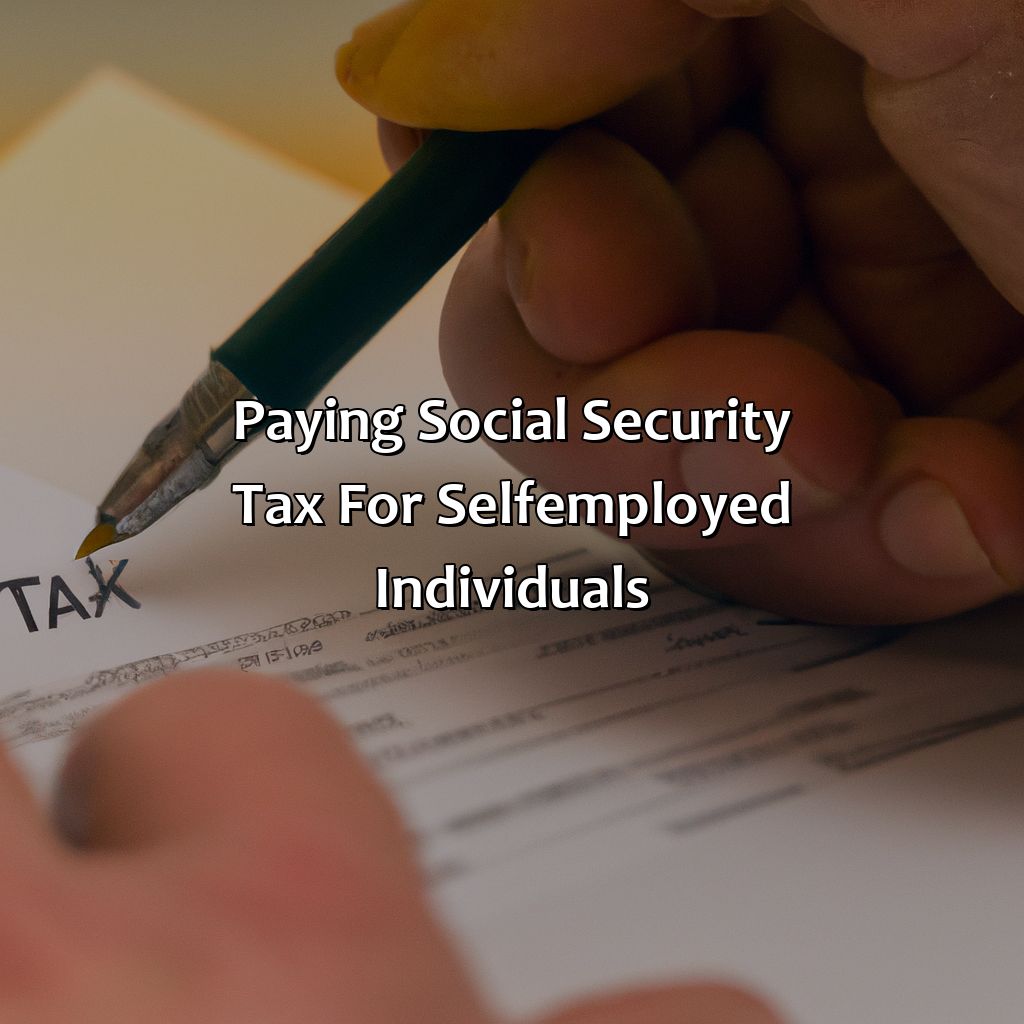
Image credits: retiregenz.com by Harry Jones
Social Security Benefits for Self-Employed Individuals
As a self-employed individual, it is essential to understand how to pay for Social Security benefits. Self-employed individuals are required to pay both the employer and employee portions of the Social Security tax. This tax is used to fund retirement benefits, disability benefits, and survivor benefits. In essence, Social Security Benefits for Self-Employed Individuals require paying twice the amount that an employee pays.
To calculate the tax that a self-employed individual needs to pay, they must first determine their net earnings. This is done by subtracting their business expenses from their total revenue. The tax rate for Social Security is a fixed percentage of the individual’s net earnings, up to a maximum amount. This maximum amount is adjusted annually.
In addition to the Social Security tax, self-employed individuals are also required to pay a Medicare tax. This tax is used to fund medical benefits for individuals who are retired or disabled. The Medicare tax is calculated as a percentage of the individual’s net earnings, without a maximum limit.
It is important to note that Social Security Benefits for Self-Employed Individuals are not a recent development. The Social Security Act was signed into law by President Franklin D. Roosevelt in 1935. However, it wasn’t until 1950 that self-employed individuals were required to pay Social Security taxes.

Image credits: retiregenz.com by Joel Duncun
Requirements for Social Security Eligibility for Self-Employed Individuals
Self-employed individuals must meet certain eligibility requirements to receive social security benefits. These include paying self-employment taxes and earning a minimum amount of income. To qualify, one must have earned at least $400 in self-employment income and paid social security taxes on that income. The amount of social security tax paid is based on the individual’s net income from self-employment.
It’s important for self-employed individuals to stay informed about their social security eligibility requirements, as failure to pay self-employment taxes can result in penalties and missed benefits. Additionally, self-employed individuals may consider consulting with a financial advisor or tax professional to ensure they are meeting their obligations and maximizing their social security benefits.
Don’t miss out on the benefits you’re entitled to – stay informed and keep up with your social security eligibility requirements. Your future financial security depends on it.
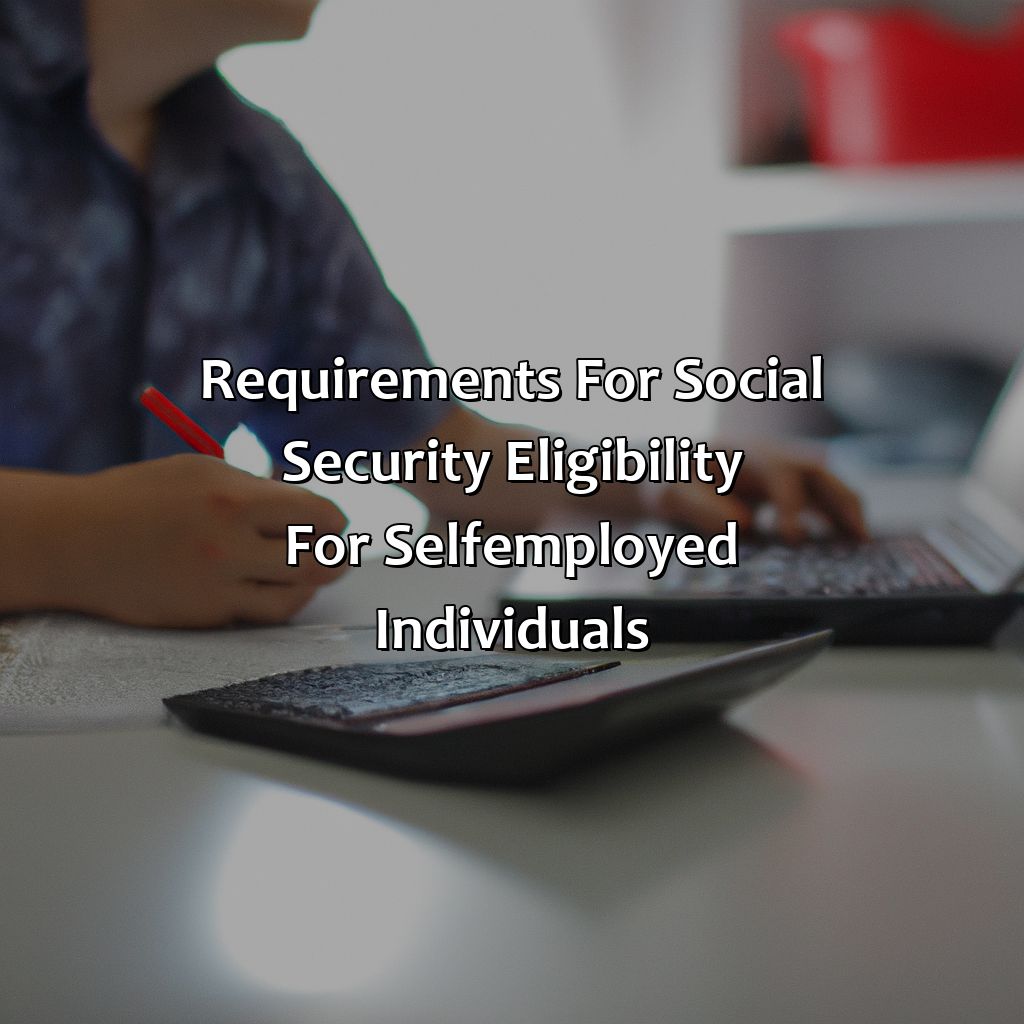
Image credits: retiregenz.com by Adam Jones
Record-Keeping Requirements for Self-Employed Individuals
Record-Keeping Requirements for Self-Employed Individuals
For self-employed individuals, keeping detailed records is crucial. It is a legal requirement to keep accurate records of all income, expenses and taxes paid. Failure to do so can result in hefty penalties. Detailed records enable self-employed individuals to accurately calculate their tax liability and claim tax deductions.
In order to maintain accurate records, self-employed individuals should keep receipts of all expenses related to their business. It is important to separate personal expenses from business expenses. Expenses that can be claimed as tax deductions include travel, office supplies and equipment, utilities, rent and payments to employees.
Moreover, self-employed individuals should keep track of all income received. This includes payments from clients, sales of products or services, and interest earned. All income should be reported on the annual tax return.
In addition to keeping detailed records for tax purposes, it is also important for self-employed individuals to keep track of their business performance. This can include monitoring the cash flow, tracking sales and profits, and setting financial goals.
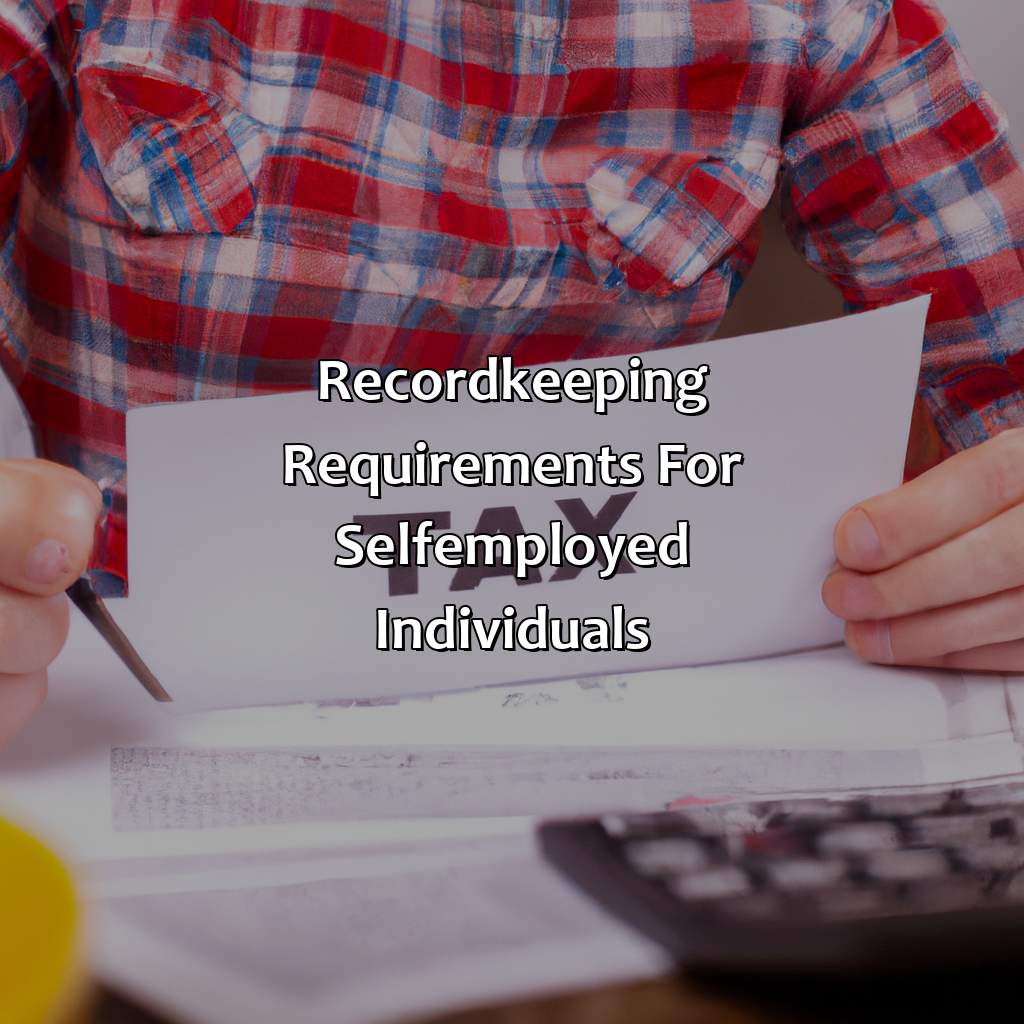
Image credits: retiregenz.com by James Jones
Late Filing and Payment Penalties
Late Filing and Payment Consequences:
If Social Security taxes are not paid or filed on time, the IRS can impose severe penalties based on the amount owed and the length of delay. Late payments may result in interest charges. Filing after the deadline may lead to a penalty of 5% of the unpaid taxes per month, up to 25% of the total balance due. Thus, it is essential to file the Social Security tax returns on time and pay the taxes owed promptly.
Continuing with this concept, failure to pay these taxes on time can result in a federal tax lien against the taxpayer and their assets, which can harm their credit scores and hinder their ability to get loans or obtain credit. The IRS may also hold off on refunding the taxpayer any overpaid taxes if there are outstanding tax liabilities, including unpaid Social Security taxes.
It’s critical to note that the IRS provides various options, such as payment plans and installment agreements, to help taxpayers who are unable to pay their taxes on time. Communication and timely filing are essential when dealing with Social Security taxes, as it can save the taxpayer from penalties and interest charges.
A notable instance of this was a self-employed business owner who failed to file Social Security taxes promptly, leading to a significant tax debt. The IRS imposed a federal tax lien and seized assets, including real estate properties and bank accounts. The business owner was left with very few options, apart from filing for bankruptcy. It is crucial to take Social Security taxes seriously and pay them promptly to avoid these harsh consequences.
In summary, self-employed individuals must pay Social Security taxes on time to avoid late filing and payment penalties. These penalties are severe, causing tax liens, harm to credit scores, and seizure of assets. Taxpayers must communicate with the IRS and use available payment plans when unable to pay on time. A proper understanding of these consequences can enable individuals to avoid situations like that of the self-employed business owner mentioned above.
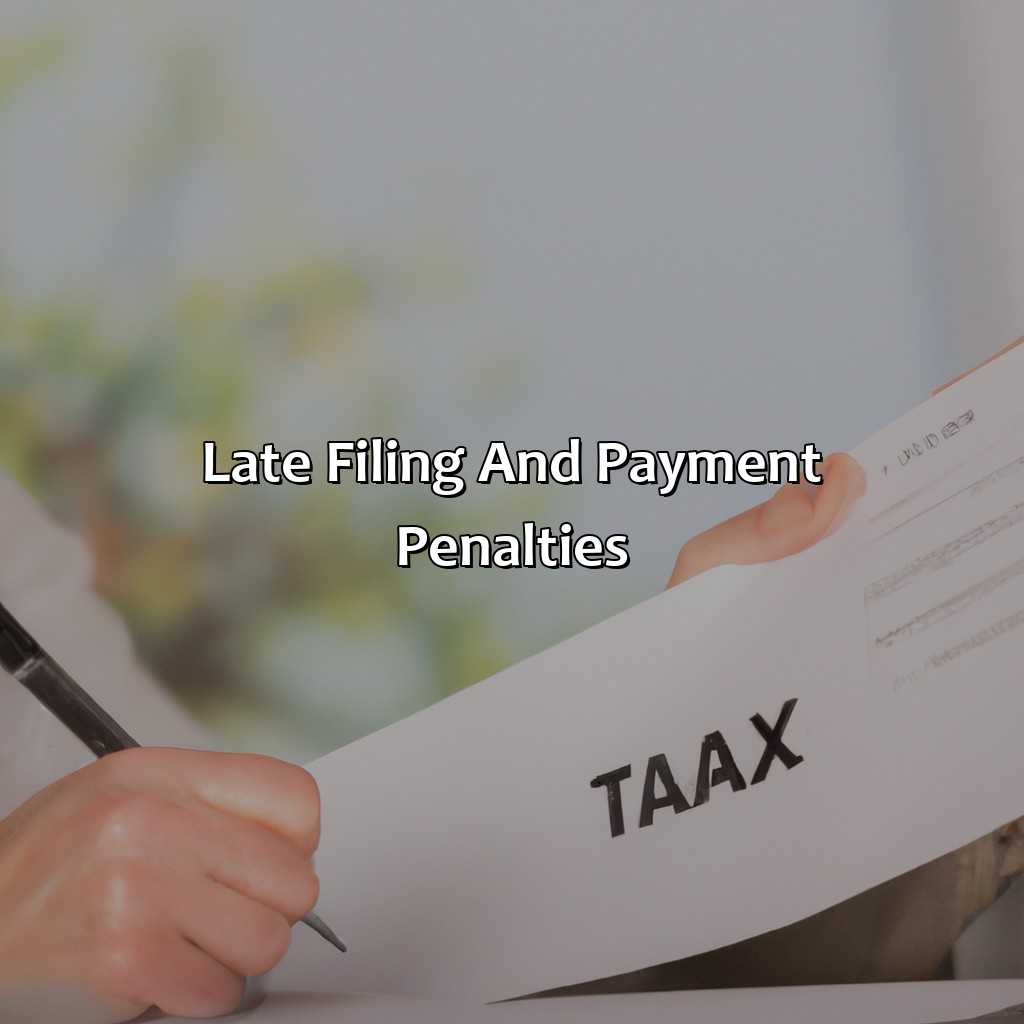
Image credits: retiregenz.com by Joel Arnold
Five Facts About How Self Employed Pay Social Security:
- ✅ Self-employed individuals must pay both the employer and employee portion of Social Security taxes, which currently amounts to 12.4% of their net earnings. (Source: IRS)
- ✅ The Social Security tax rate is applied to the first $142,800 of net earnings in 2021. (Source: SSA)
- ✅ Self-employed individuals can deduct half of their Social Security tax from their taxable income. (Source: The Balance)
- ✅ To pay Social Security taxes, self-employed individuals can use the IRS Electronic Federal Tax Payment System or file Form 1040-ES and make quarterly estimated tax payments. (Source: Nolo)
- ✅ Failure to pay Social Security taxes or underpayment can result in penalties and interest charges. (Source: Investopedia)
FAQs about How Do Self Employed Pay Social Security?
How do self-employed pay social security?
Self-employed individuals can pay social security through self-employment taxes which consist of both the employer and employee share of social security and Medicare taxes. These taxes are paid on the individual’s annual income tax return using Schedule SE.
How much social security tax does a self-employed person pay?
Self-employed individuals are required to pay the full amount of the social security and Medicare taxes, which is currently 15.3% of their net earnings from self-employment. However, they may be eligible for certain deductions and credits.
When are self-employment taxes due?
Self-employment taxes are due on April 15th of each year, which is also the deadline for filing income tax returns. However, individuals can make estimated tax payments throughout the year to avoid a large tax bill at the end.
What are the consequences of not paying self-employment taxes?
Failure to pay self-employment taxes can result in penalties and interest charges, as well as possible legal action by the IRS. Additionally, individuals who do not pay into the social security system may not be eligible for certain benefits in the future.
Can a self-employed individual opt out of paying social security taxes?
No, self-employment taxes are mandatory for individuals earning income through self-employment. However, there are certain exemptions and deductions that may lower the amount owed.
Can a self-employed individual deduct social security taxes on their tax return?
Self-employed individuals can deduct half of their self-employment taxes on their income tax return as an adjustment to income. This can help lower their taxable income and reduce their overall tax liability.
